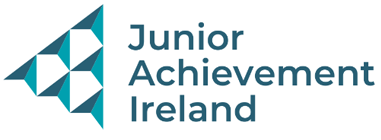Second Level Programmes
Junior Achievement Ireland recruits, vets, trains and supports volunteers from business to facilitate in-classroom programmes covering themes such as employability, financial literacy, STEM subjects and entrepreneurship. JA programmes are designed to complement the formal curriculum - these touchpoints are summarised in this document.
JA Inspires
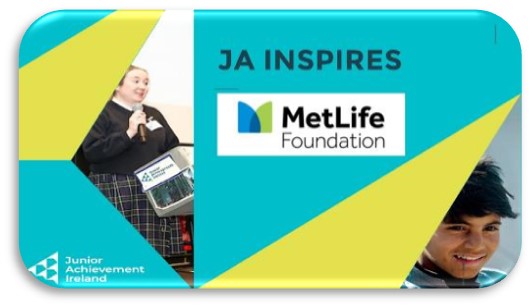
JA volunteers have an important story to tell. Through this once-off 40–60-minute workshop, second level students learn from business volunteers about their career and educational paths – inspiring students to see themselves in similar careers and to understand the skill they acquire at school are transferable to the workplace. The workshop is split under 4 main themes: Employability, Financial Literacy, Entrepreneurship and STEAM. JA Inspires is delivered in partnership with the Metlife Foundation.
Entrepreneurship
Employability
Financial Literacy

- Develop scientific literacy for students so that they are confident and competent when faced with science in their everyday lives.
- Aims to enable them to appreciate the skills and knowledge of science.

- Provides students with a learning foundation for a wide range of careers in business, marketing, law, enterprise and management.

- Help the students to develop an awareness of their personal strengths and interests in relation to the world of work
- Distinguish different types of work and employment
- Demonstrate an understanding of what people gain from working
Futurewize
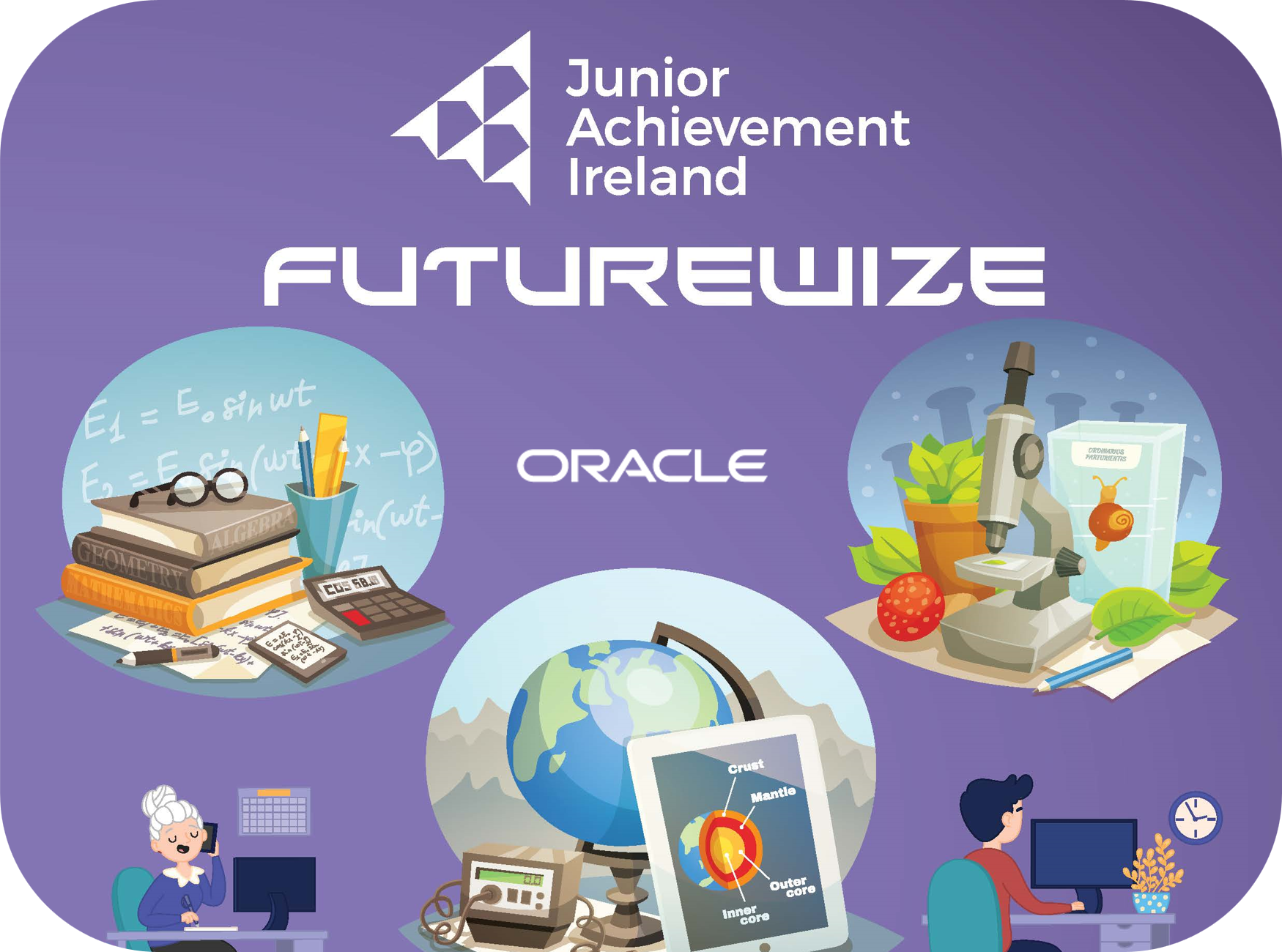
Futurewize is a three module STEAM skills workshop supported by Oracle. It links the
strands of the Junior Cycle science curriculum to varied careers and fields of study in STEAM through practical hands-on activities. Futurewize was developed with the support of Science Foundation Ireland and takes place over 2.5 hour workshop or three sessions.
STEM
Employability

- Strand: Earth and space
- Students develop a sense of the structure of the universe and some organising principles of astronomy; students explore relationships between many kinds of astronomical objects and evidence for the history of the universe. - Strand: Physical world
- Students research sustainability issues that arise from modern physics and technologies, and our generation and consumption of electricity. - Strand: Chemical world
- Students learn to communicate their understandings using representations, and the symbols and conventions of chemistry. - Strand: Biological world
- Students explore body systems and how they interact, and learn about human health.
JA Finance Park
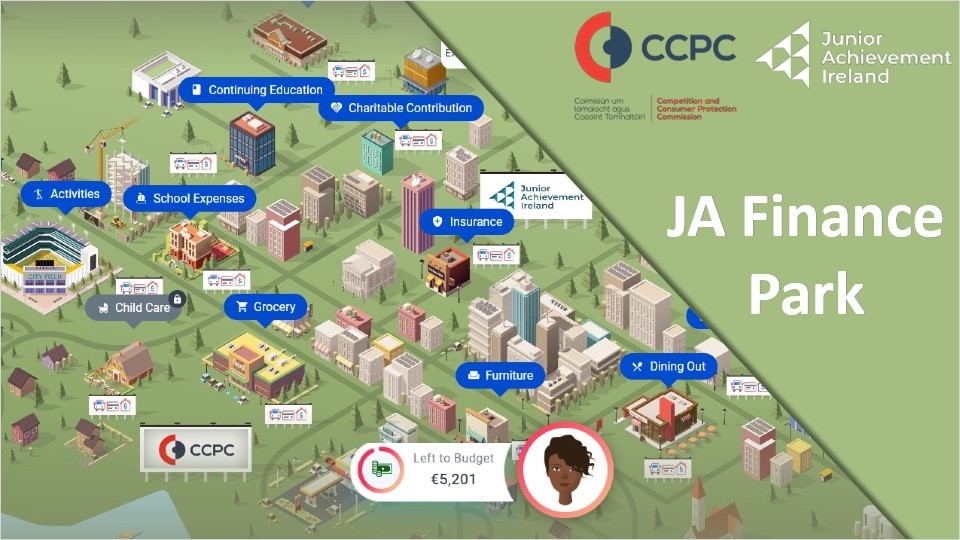
Supported by the Competition and Consumer Protection Commission, JA Finance Park helps students build a foundation for making intelligent, lifelong personal financial decisions, including issues related to income, spending, saving, and credit. JA Finance Park culminates in an interactive online simulation where students are assigned a persona which they have to budget for, helping students put their knowledge to the test.
Financial Literacy
Employability

- Make sense of a given problem, and if necessary mathematise a situation
- Solve money-related problems including those involving bills


- Review the personal resources available to them to realise their needs and wants and analyse the extent to which realising their needs and wants may impact on individuals and society
- Construct a personal financial lifecycle to identify financial needs at different life stages
- Prepare and analyse a budget, determine the financial position, and recommend appropriate action
- Prepare and analyse a budget, determine the financial position, and recommend appropriate action
- Identify reasons for saving and borrowing money, relate the reasons to determining appropriate sources of finance with respect to their purpose, costs and risks
- Explain key personal taxes and charges and suggest the occasions when and why they might arise
- Identify appropriate types of insurance for particular personal needs and consider costs, benefits and risks
- Identify appropriate types of insurance for particular personal needs and consider costs, benefits and risks Interpret a wage slip and calculate personal tax liability arising from employment
Gen E
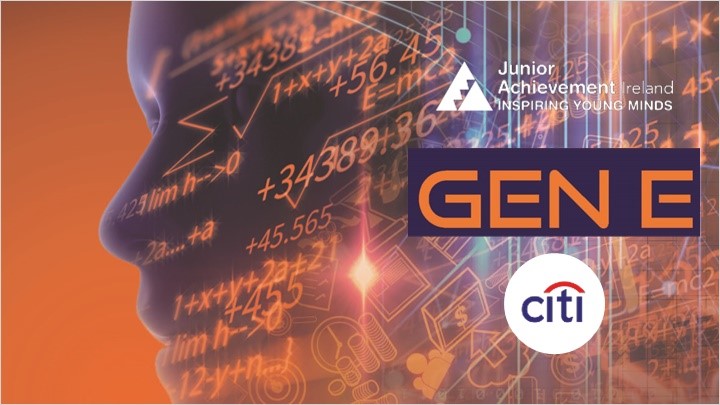
The GEN E programme was developed to complement and enhance the TY enterprise curriculum, particularly the mini company project. In this Citi supported programme, students partake in Design Thinking, Project Management, Marketing, and Communication workshops with a business volunteer.
Entrepreneurship
Employability

- To give students a general picture and an understanding ofeconomic activities, patterns and principles.
- To develop in students the capacity to apply these principles and to help them transfer this knowledge to new situations, and to achieve critical thought.
- To develop in all our students an interest in everyday economics and to aid them in their education for citizenship.

- To develop an understanding of the structures, institutions, processes and management of business.
- To enable students to make informed business decisions.
- To enable students to use established commercial principles and knowledge, to critically evaluate commercial information, and to offer solutions to given commercial problems.
- To promote a positive awareness of cultural and social diversity in international business.
- To enable students to understand and appreciate ethics in business
Career Success
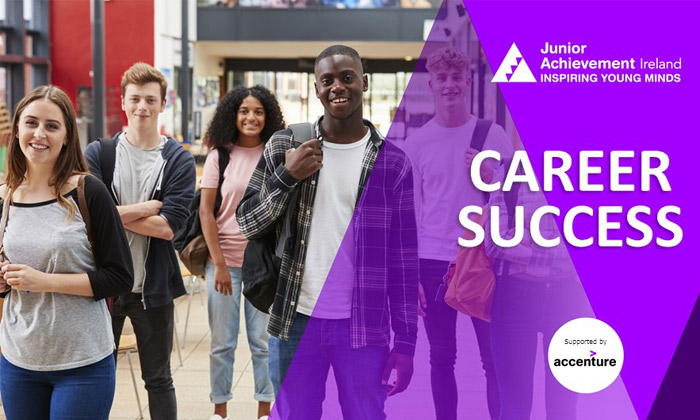
In partnership with Accenture, JA’s employability programme integrates the Accenture Skills to Succeed Academy (S2S), a digital platform for use by senior cycle second level students. Effective Communication, Teamwork, Personal Brand, and Interview Skills are the focus of the programme. Students practice and develop these skills as the JA business volunteer demonstrates their relevance to school, to work, and to life.
Financial Literacy
Employability

- Enables Leaving Certificate Applied students develop and apply good communication skills.
- Provides opportunities for students to learn and practise skills in interpersonal communication

- Aims to develop important workplace skills such as planning, communication and teamwork
- Help the students to develop an awareness of their personal strengths and interests in relation to the world of work
- The student will be able to prepare properly for an interview; participate in a mock interview for a particular job

- To develop an understanding of the structures, institutions, processes and management of business.
- To enable students to make informed business decisions.
- To enable students to use established commercial principles and knowledge, to critically evaluate commercial information, and to offer solutions to given commercial problems.
- To promote a positive awareness of cultural and social diversity in international business.
- To enable students to understand and appreciate ethics in business.

- To give students a general picture and an understanding of economic activities, patterns and principles.
- To develop in students the capacity to apply these principles and to help them transfer this knowledge to new situations, and to achieve critical thought.
- To develop in all our students an interest in everyday economics and to aid them in their education for citizenship.
Finance Your Future

This financial literacy programme explores earning potential, balancing personal budgets, future planning, risk and insurance. By practicing these skills, students come to realise the importance and impact of their education on their future. Finance Your Future is delivered in partnership with Zurich.
Financial Literacy
Employability

- Examine some of the real and immediate issues involved in living independently.
- Acquire knowledge of the various ways of organising managing one’s own finances and expenditure.
- Develop skills of budgeting, saving and borrowing.
- Understanding Insurance

- In a problem-solving environment it is recognised that there are three things learners need to do: make sense of the problem, make sense of the mathematics they can learn and use when doing the problem, arrive at a correct solution to the problem.

- To give students a general picture and an understanding of economic activities, patterns and principles.
- To develop in students the capacity to apply these principles and to help them transfer this knowledge to new situations, and to achieve critical thought.
- To develop in all our students an interest in everyday economics and to aid them in their education for citizenship.

- To develop an understanding of the structures, institutions, processes and management of business.
- To enable students to make informed business decisions.
- To enable students to use established commercial principles and knowledge, to critically evaluate commercial information, and to offer solutions to given commercial problems.
- To promote a positive awareness of cultural and social diversity in international business.
- To enable students to understand and appreciate ethics in business.
